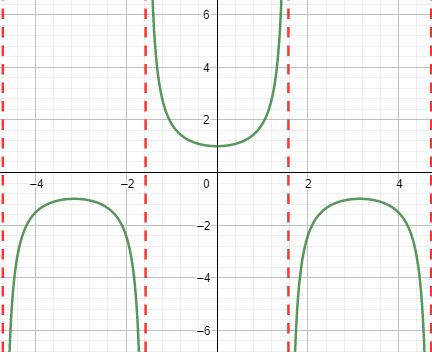
First, you need to understand how stocks are traded on the stock exchange. This includes a basic understanding of how companies, speculators, and bankers operate. This article will explain how the different roles impact on the prices of various stocks. These roles will allow you to profit from the market in the best way possible.
Companies
Stock exchanges are a key part of global financial markets. They provide liquidity for investors and shareholders. Companies that use stock exchanges to raise funds or sell shares are known as 'equities.' Companies that use stock exchanges typically abide by a strict set of rules and regulations. Companies must meet minimum standards to be listed on the exchange, including being registered with the U.S. Securities and Exchange Commission and having a certain number of shares outstanding. Nasdaq is the largest stock exchange worldwide. It will soon require that all companies have at minimum one woman.

Speculators
Speculators, a type investor who seeks out price fluctuations in stocks, are called speculators. They employ a range of strategies to maximize their profits and rely on tips, rumors, as much as their own intuitions and analysis. Speculators are the driving force behind many businesses. Their capital provides capital for new companies, and helps troubled industries raise cash. However, they do take significant risks and may experience losses that can overwhelm their initial investment.
Bankers
If you're thinking of starting an investment firm, why don't you consider the stock exchange to bankers? There are many benefits to doing this. First, the capital market is a great fit for banks, especially if your industry is financial services. Bankers can also build strong stock options portfolios. The exchange can also be used to make money. Bankers can gain a range of benefits from listed companies by using their products and services.
Traders
Traders make their money buying and selling shares in various companies on the stock exchange. These traders use technical analyses to analyze price patterns. These traders try to make short-term profits by trading stocks and buying or selling other stocks. Traders tend to fall into one of three categories. These traders may be individuals, institutions, or companies. Here are some examples. Read on to learn about their different ways of investing in the stock market.

Investing
A stock exchange is one way you can gain an advantage in stock market investing. A stock exchange is a marketplace where companies are dispersed and individual investors can contribute to the growth of the company through the purchase of a minority share. Alejandro Nieto estimates that the stock markets are the best way to make a profit without putting all your money at risk. Although you can make a lot from the stock exchange, it is worth taking the risk.
FAQ
How are securities traded?
The stock market is an exchange where investors buy shares of companies for money. Shares are issued by companies to raise capital and sold to investors. Investors then sell these shares back to the company when they decide to profit from owning the company's assets.
The price at which stocks trade on the open market is determined by supply and demand. If there are fewer buyers than vendors, the price will rise. However, if sellers are more numerous than buyers, the prices will drop.
Stocks can be traded in two ways.
-
Directly from your company
-
Through a broker
Is stock marketable security?
Stock can be used to invest in company shares. This is done by a brokerage, where you can purchase stocks or bonds.
You can also invest in mutual funds or individual stocks. In fact, there are more than 50,000 mutual fund options out there.
The key difference between these methods is how you make money. Direct investment earns you income from dividends that are paid by the company. Stock trading trades stocks and bonds to make a profit.
In both cases, ownership is purchased in a corporation or company. If you buy a part of a business, you become a shareholder. You receive dividends depending on the company's earnings.
Stock trading offers two options: you can short-sell (borrow) shares of stock to try and get a lower price or you can stay long-term with the shares in hopes that the value will increase.
There are three types to stock trades: calls, puts, and exchange traded funds. Call and put options let you buy or sell any stock at a predetermined price and within a prescribed time. Exchange-traded funds are similar to mutual funds except that instead of owning individual securities, ETFs track a basket of stocks.
Stock trading is very popular because it allows investors to participate in the growth of a company without having to manage day-to-day operations.
Stock trading is not easy. It requires careful planning and research. But it can yield great returns. It is important to have a solid understanding of economics, finance, and accounting before you can pursue this career.
How Does Inflation Affect the Stock Market?
Inflation has an impact on the stock market as investors have to spend less dollars each year in order to purchase goods and services. As prices rise, stocks fall. You should buy shares whenever they are cheap.
Are bonds tradable?
Yes, they do! As shares, bonds can also be traded on exchanges. They have been doing so for many decades.
They are different in that you can't buy bonds directly from the issuer. You must go through a broker who buys them on your behalf.
This makes buying bonds easier because there are fewer intermediaries involved. This also means that if you want to sell a bond, you must find someone willing to buy it from you.
There are many different types of bonds. Some bonds pay interest at regular intervals and others do not.
Some pay interest quarterly while others pay an annual rate. These differences make it easy compare bonds.
Bonds can be very helpful when you are looking to invest your money. For example, if you invest PS10,000 in a savings account, you would earn 0.75% interest per year. You would earn 12.5% per annum if you put the same amount into a 10-year government bond.
If all of these investments were accumulated into a portfolio then the total return over ten year would be higher with the bond investment.
What is a fund mutual?
Mutual funds are pools that hold money and invest in securities. They allow diversification to ensure that all types are represented in the pool. This reduces risk.
Professional managers oversee the investment decisions of mutual funds. Some funds permit investors to manage the portfolios they own.
Mutual funds are preferable to individual stocks for their simplicity and lower risk.
How do I invest my money in the stock markets?
You can buy or sell securities through brokers. Brokers can buy or sell securities on your behalf. When you trade securities, you pay brokerage commissions.
Banks are more likely to charge brokers higher fees than brokers. Banks often offer better rates because they don't make their money selling securities.
If you want to invest in stocks, you must open an account with a bank or broker.
If you use a broker, he will tell you how much it costs to buy or sell securities. This fee is based upon the size of each transaction.
Ask your broker about:
-
the minimum amount that you must deposit to start trading
-
Are there any additional charges for closing your position before expiration?
-
What happens if you lose more that $5,000 in a single day?
-
How many days can you keep positions open without having to pay taxes?
-
whether you can borrow against your portfolio
-
Whether you are able to transfer funds between accounts
-
How long it takes for transactions to be settled
-
the best way to buy or sell securities
-
How to avoid fraud
-
how to get help if you need it
-
Can you stop trading at any point?
-
If you must report trades directly to the government
-
If you have to file reports with SEC
-
Do you have to keep records about your transactions?
-
What requirements are there to register with SEC
-
What is registration?
-
What does it mean for me?
-
Who needs to be registered?
-
When do I need registration?
Statistics
- US resident who opens a new IBKR Pro individual or joint account receives a 0.25% rate reduction on margin loans. (nerdwallet.com)
- Ratchet down that 10% if you don't yet have a healthy emergency fund and 10% to 15% of your income funneled into a retirement savings account. (nerdwallet.com)
- Individuals with very limited financial experience are either terrified by horror stories of average investors losing 50% of their portfolio value or are beguiled by "hot tips" that bear the promise of huge rewards but seldom pay off. (investopedia.com)
- For instance, an individual or entity that owns 100,000 shares of a company with one million outstanding shares would have a 10% ownership stake. (investopedia.com)
External Links
How To
How to make your trading plan
A trading plan helps you manage your money effectively. It will help you determine how much money is available and your goals.
Before you begin a trading account, you need to think about your goals. You may want to make more money, earn more interest, or save money. You might consider investing in bonds or shares if you are saving money. If you are earning interest, you might put some in a savings or buy a property. You might also want to save money by going on vacation or buying yourself something nice.
Once you know your financial goals, you will need to figure out how much you can afford to start. This will depend on where and how much you have to start with. Also, consider how much money you make each month (or week). The amount you take home after tax is called your income.
Next, save enough money for your expenses. These include bills, rent, food, travel costs, and anything else you need to pay. Your total monthly expenses will include all of these.
You will need to calculate how much money you have left at the end each month. This is your net income.
You're now able to determine how to spend your money the most efficiently.
To get started with a basic trading strategy, you can download one from the Internet. You could also ask someone who is familiar with investing to guide you in building one.
Here's an example spreadsheet that you can open with Microsoft Excel.
This displays all your income and expenditures up to now. Notice that it includes your current bank balance and investment portfolio.
Here's another example. This was created by an accountant.
It will help you calculate how much risk you can afford.
Remember: don't try to predict the future. Instead, think about how you can make your money work for you today.